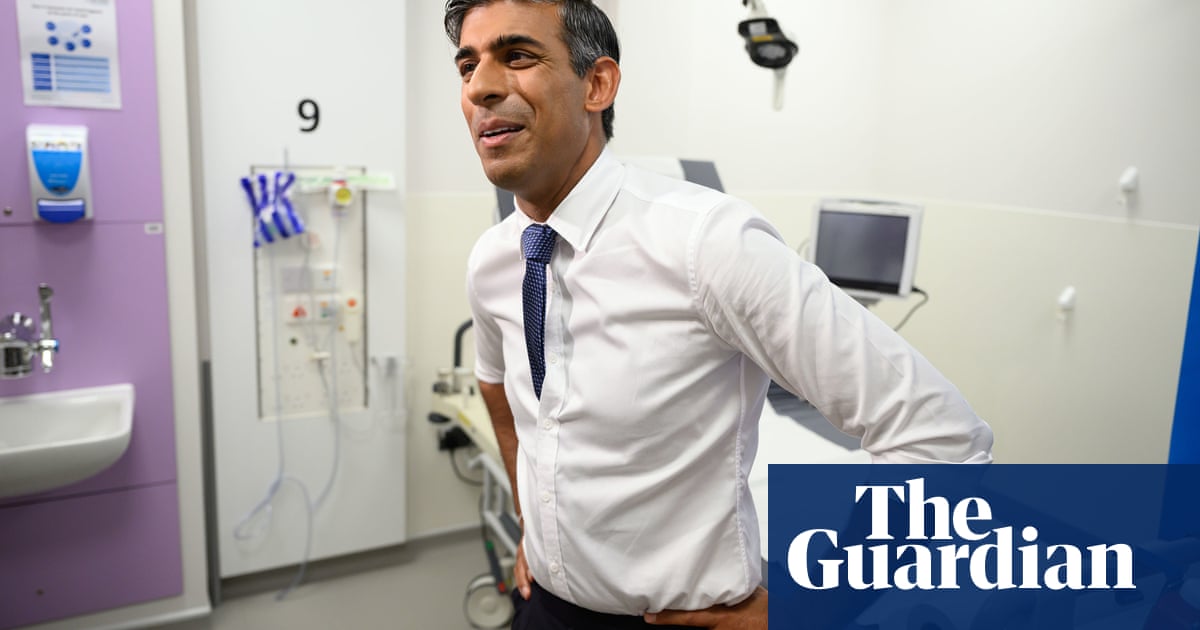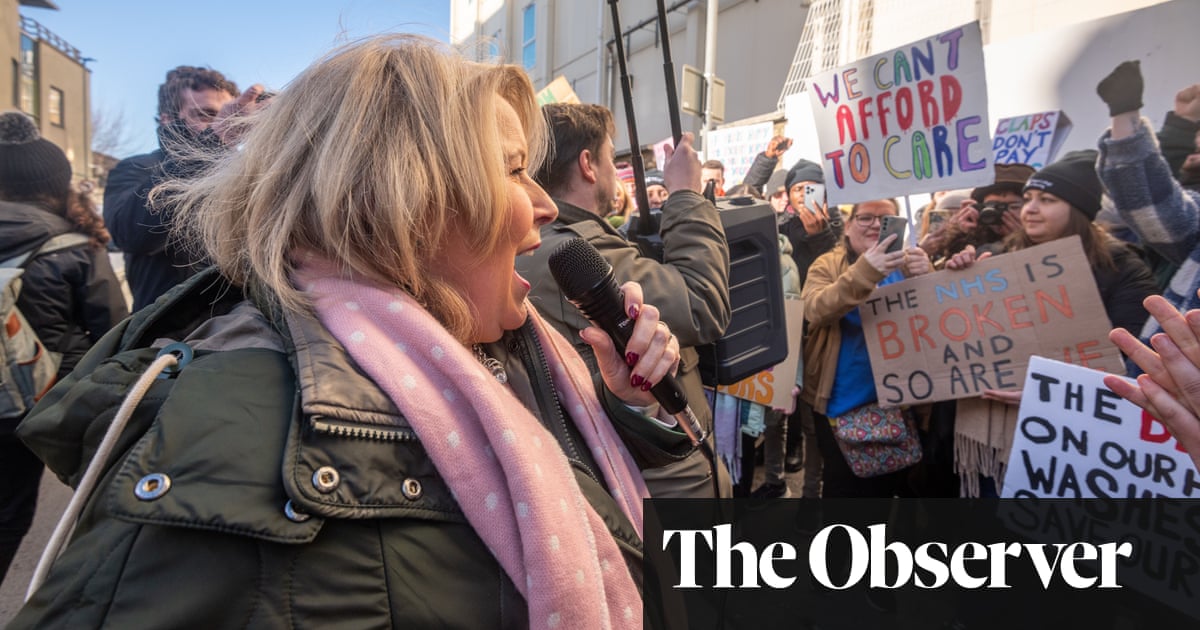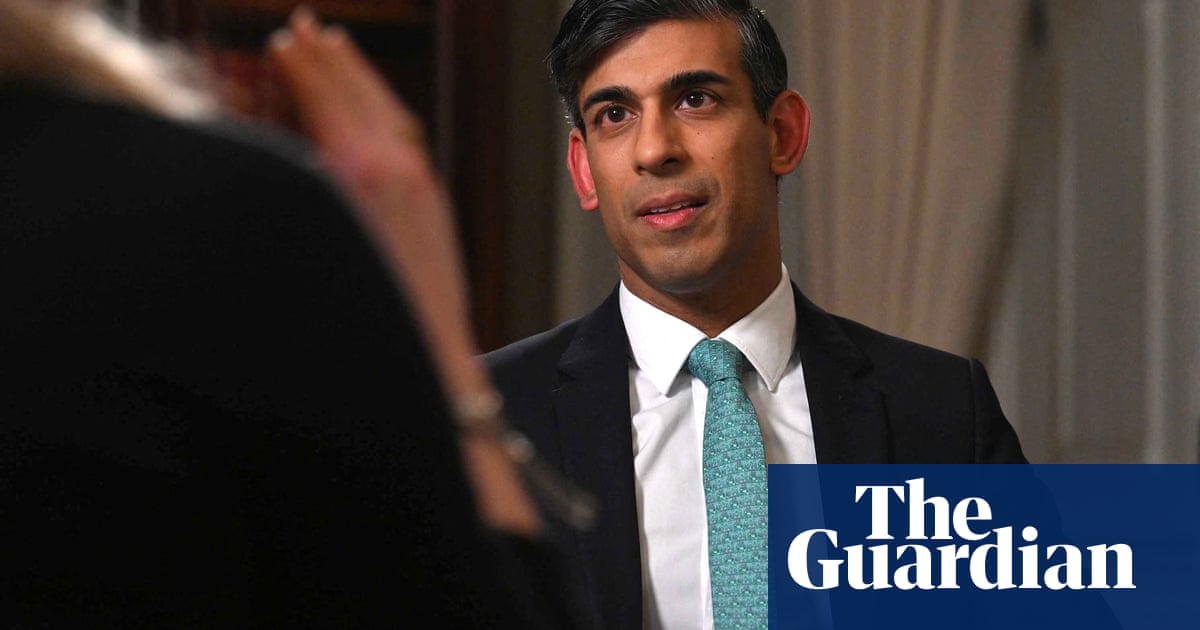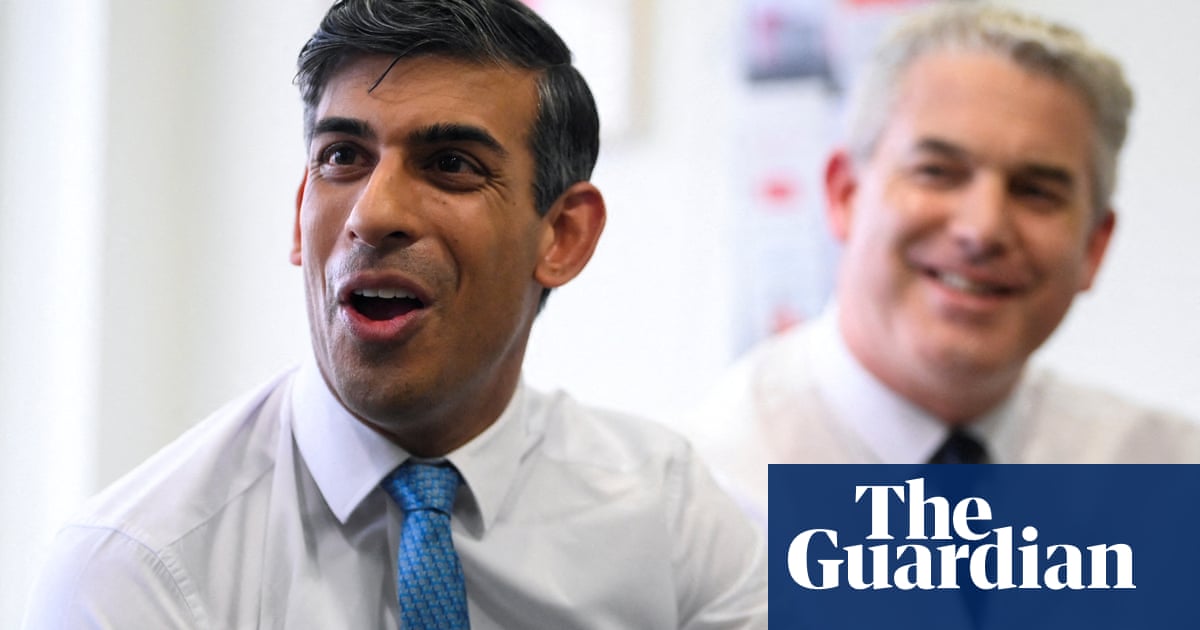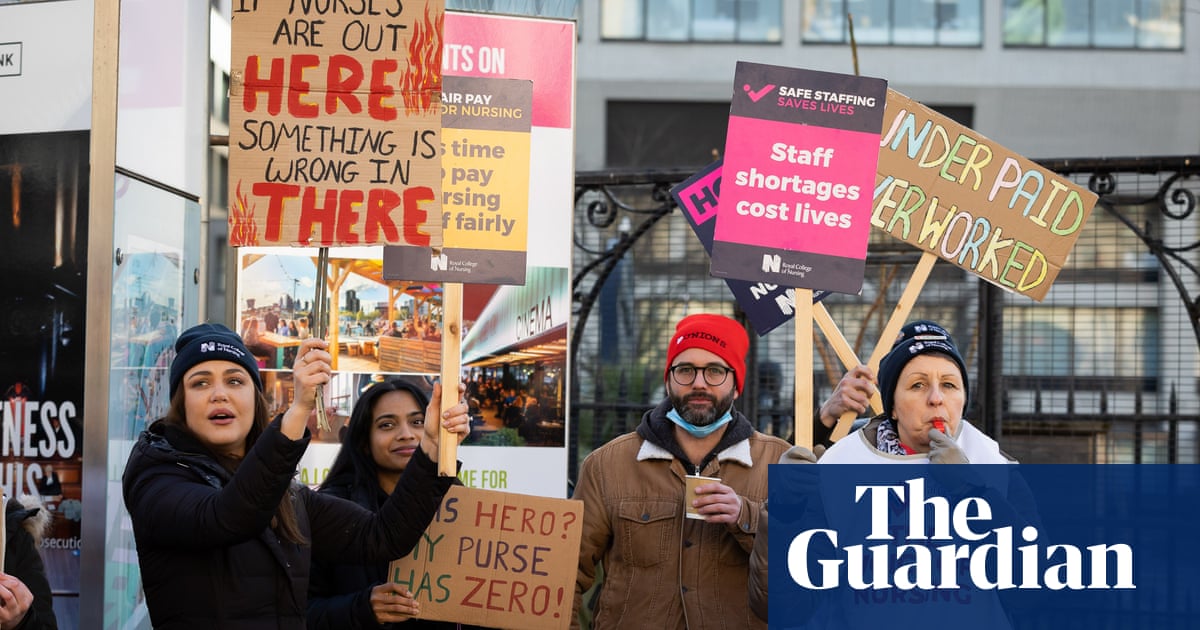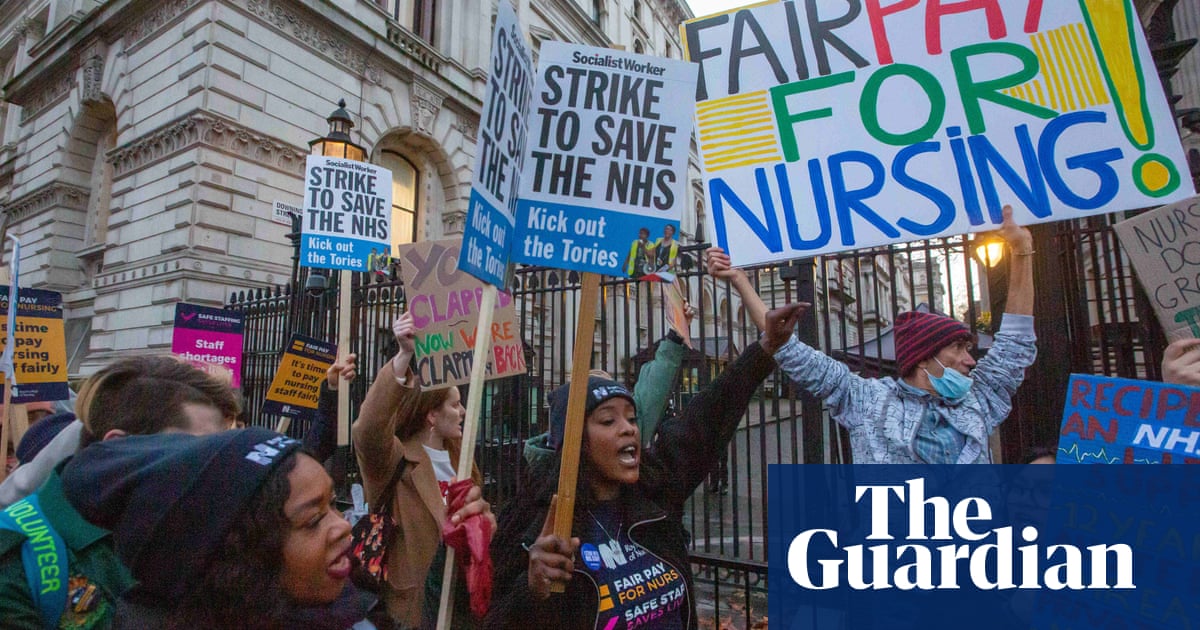
Rishi Sunak has opened the door to a pay deal for striking nurses when ministers meet health unions for talks on Monday after signalling for the first time a willingness to address demands for more help with the cost of living.
The Guardian understands ministers are prepared to look at a “one-off” payment to health workers, possibly in the form of a hardship payment to get them through this winter. Downing Street and the Treasury were accused of blocking such an offer last month.
The government has consistently ruled out reopening the pay settlement for 2022-23, amid concerns the cost would be carried over to future years and that other sectors would demand the same, but the prime minister has raised expectations he is willing to look at alternative help for struggling nurses in England.
Asked in a BBC television interview on Sunday whether pay rises this year were still possible, he repeatedly hinted the government was willing to have “those conversations” with union leaders, despite ministers previously refusing to discuss pay.
Pat Cullen, the general secretary of the Royal College of Nurses, said Sunak’s openness to pay talks had offered a “chink of optimism” that further strikes could be averted, with his comments representing a “little shift”.
The health secretary, Steve Barclay, has also suggested health workers could get a bigger pay rise in April – as part of the 2023-24 pay settlement – if they agree to NHS “efficiencies”. Sources said opening this year’s deal was “not in play” as it was unaffordable.
However, a one-off offer and a higher pay deal for next year would be contingent on nurses dropping their demands for a percentage rise this year and cancelling strikes, with the next stoppages expected on 18 and 19 January.
In an interview with the Guardian, Keir Starmer increased pressure on Sunak to reach a compromise with the health unions. “His refusal to simply discuss this year’s pay deals is the only remaining reason strikes are going ahead,” the Labour leader said. “He doesn’t even need to legislate – just get in the room and negotiate. Nurses have shown they are willing to compromise, the government must now do the same.”
Government sources said that if the talks on Monday were successful it could “unlock” conversations about what additional “one-off changes” there could be this year, however no figures had yet been agreed with the Treasury.
A flat-rate payment for all nurses, which could be described as a “hardship payment”, is one of the options that could be on the table.
Sunak, who is grappling with the biggest wave of strikes in decades, is hoping the talks with ministers could curtail further stoppages by public sector workers including nurses, postal staff and train drivers.
Until now, the health unions have said they would only call off strikes if ministers looked again at this year’s pay settlement. However, union sources told the Guardian that while they would prefer a permanent uplift in pay, they were keen to reach a resolution so would be prepared to discuss a one-off offer.
In an interview with BBC One’s Sunday with Laura Kuenssberg programme, Sunak said: “The door has always been open to talk about the things that nurses want to talk about, and the unions want to talk about more generally, which is why we actually just wrote to all the unions from across the public sector in for talks and those talks are happening on Monday.
“The government has always been clear that it’s happy to talk about pay for this year that’s responsible, that’s affordable … It wouldn’t be right for me to sit here and start having negotiations in public with you, or with anybody else.”
Sunak declined to “categorically” rule out a pay rise for nurses until April, and, pressed by Kuenssberg whether talks could include pay “right here, right now”, meaning a settlement for 2022-23 rather than for 2023-24, he replied: “We want to have these conversations.”
The prime minister said the government was about to start a new pay settlement round for 2023-24 and, before the process began, wanted to sit down with the unions and “make sure they understand where we’re coming from” on future pay.
Cullen indicated last week that nurses could be willing to accept a 10% pay rise with a call on the government to meet them “halfway”. She said the demand for a 19% rise – described as “unaffordable” by the government – was just a “starting point”.
After the interview, she told the BBC there was a “chink of optimism” and that there had been “a little shift” from Sunak.
“The prime minister talked about coming to the table. That’s a move for me because I’ve said ‘let’s meet halfway’. I can’t negotiate on my own and on the airwaves. If that table is now available I will be there. But it must be about addressing pay from 2022-23,” she said.
“We will put our case, but what the government wants to talk about tomorrow is pay moving forward and in the broadest terms. That is not going to avert the strike action that’s planned for 10 days’ time.”
In the same interview, the prime minister refused to acknowledge the NHS was in crisis, although he admitted the health service was “undeniably under enormous pressure” but suggested much of it was a result of the Covid pandemic, even though waiting lists were over 4 million and the staffing crisis existed before then.
Adrian Boyle, the president of the Royal College of Emergency Medicine, said it was wrong to blame the crisis on the pandemic, describing a deteriorating situation spanning back nearly a decade that has led to ambulances waiting outside hospitals and a lack of beds.
“If you go back before 2015, we did not have problems with ambulance handover delays. We did not have very often people spending more than 12 hours in emergency departments,” he told Sky News. “Fundamentally, the big problem is that our hospitals are just too full.”
Rail unions will also meet ministers on Monday after another week of disruption to services because of strikes, with only one in five trains running between Tuesday and Saturday after six months of stoppages.
They continue to say the government is blocking a deal to end the long-running row over pay, jobs and conditions. However, ministers are understood to be discussing dropping a demand for drivers rather than guards to operate train doors, a move that could help pave the way to a deal.




